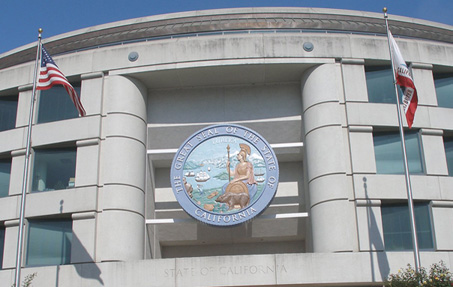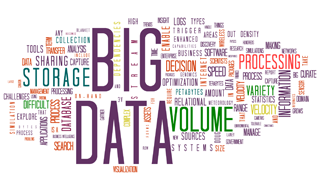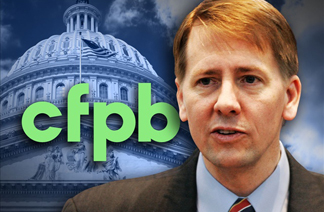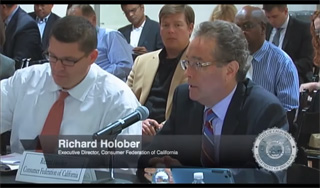Category Archives: Latest In Consumer News
Uber Clueless On Women, Privacy, The Press And Taking The ‘God View’

Forbes reports: “Julia Allison, an attendee at a launch party in Chicago in September 2011, says Uber treated guests to Creepy Stalker View, showing them the whereabouts and movements of 30 Uber users in New York in real time. She recognized half of the people listed and texted one of them, entrepreneur Peter Sims, revealing that she knew his current whereabouts.” Read More ›
Takata “Deeply Sorry” to Those Affected by Defective Airbags, Still Reluctant on Nationwide Recall
by Ashlee Kieler, Consumerist

Senators Richard Blumenthal of Connecticut and Ed Markey of Massachusetts, both members of the Committee, pressured the auto executives to answer questions about the slow-pace related to replacing defective airbags and the failure to expand the scope of the recall. “It strikes me that these airbags failed, but the system failed equally if not more,” Blumenthal says. “I want to join Sen. Markey in his calling for a national recall of all cars with these airbags in passenger and driver’s side.”
Read More ›
Uber and Other Tech Firms Know Lots About You — Should You Worry?
by Carolyn Said, San Francisco Chronicle

“The Internet relies on highly targeted ads based on massive surveilliance of everything we do online,” [said law professor Neil Richards]. Companies like Uber that provide real-world services have even greater treasure troves of data. “Under the happy facade of the ‘sharing economy’ are incredibly powerful information-fueled entities with an enormous amount of information about individuals. … The vast amount of information being captured, assessed and monetized changes the relationship between companies and individuals. It gives them much more power.” Read More ›
PG&E Got $29 Million In ‘Corrupt Deal’ With State, Group Says
by Jaxon Van Derbeken, San Francisco Chronicle

A ratepayer group demanded Wednesday that the California Public Utilities Commission undo a $29 million profit boost for Pacific Gas and Electric Co. that the commission approved after its president reportedly solicited the utility’s help in defeating a state ballot measure. “We have got compelling evidence of a corrupt deal between PG&E and President Michael Peevey,” said Tom Long, attorney for The Utility Reform Network. Read More ›
The Creepy New Wave of the Internet
by Sue Halpern, The New York Review of Books

Apple offered a glimpse of how the Internet of Things actually might play out, when it introduced the company’s new smart watch, mobile payment system, health apps, and other, seemingly random, additions to its product line. As Mat Honan virtually shouted in Wired: “Apple is building a world in which there is a computer in your every interaction, waking and sleeping. … telling you how many steps you took, how high you climbed and how many calories you burned. … THIS IS THE NEW APPLE ECOSYSTEM. APPLE HAS TURNED OUR WORLD INTO ONE BIG UBIQUITOUS COMPUTER.” Read More ›
If You Didn’t Change the Default Password on Your Security Camera, Someone’s Probably Watching It Stream
by Kate Cox, Consumerist

Commandeered cameras are incredibly intrusive, but as far as poor default security goes, they’re only the tip of the iceberg. Every wifi router ships with a default password, and it’s super easy to look those up by make and model. Securing your router, on the other hand, takes more work. Your remotely-accessible multifunction printer might use a weak default password or in fact not have a password at all, meaning anyone with know-how could get in. Read More ›
Whose Privacy Will Uber Violate Next? Why Its Latest Bad Behavior Matters
by Alexander B. Howard, Wired

Think through the potential issues of Uber knowing who its riders are, when, and where, and what they are likely to have been doing. … Strong conclusions can be drawn from the details of an Uber travel log, as Uber has itself noted when discussing what it calls a “Ride of Glory,” defined as “anyone who took a ride between 10pm and 4am on a Friday or Saturday night, and then took a second ride from within 1/10th of a mile of the previous nights’ drop-off point 4-6 hours later (enough for a quick night’s sleep).” Read More ›
FTC Says Privacy Certification Company Was Deceptive
by John M. Simpson, Consumer Watchdog
TRUSTe agreed to stop the deceptive practices and disgorge $200,000. “TRUSTe promised to hold companies accountable for protecting consumer privacy, but it fell short of that pledge,” said FTC Chairwoman Edith Ramirez. “Self-regulation plays an important role in helping to protect consumers. But when companies fail to live up to their promises to consumers, the FTC will not hesitate to take action.” I’ve got a little different takeaway: Self-regulation doesn’t work. Read More ›
CFPB Stretches Bank Rules to Cover Prepaid Cards, Mobile Payments
by Sheryl Harris, The Plain Dealer (Cleveland, Ohio)

“Many of these prepaid consumers are living paycheck to paycheck, and are engaged in a constant battle to make ends meet,” said CFPB Director Richard Cordray in remarks prepared for a field hearing Thursday. “They are some of the most economically vulnerable among us, and most of them have no idea that the prepaid cards they choose to purchase are largely unregulated.” … Many prepaid card issuers broadened consumer protections and trimmed fees as they came under increased scrutiny from the bureau. Read More ›
More Cracks in Google’s ‘Don’t Be Evil’ Mantra as Data Collection, Political Power Soar
by Deirdre Fulton, Common Dreams
The combination of expanding technology and exploding political influence could be dangerous, Public Citizen warns. “Google has essentially responded to concerns about its practices by saying ‘just trust us’,” said Taylor Lincoln, research director of Public Citizen’s Congress Watch division and editor of the report. “But Google is gaining so much power that regulators may find it difficult to act if it turns out that the public’s trust has been misplaced.” Read More ›
Why You Shouldn’t Get a Reverse Mortgage Just Because Fred Thompson Tells You to
by Ashlee Kieler, Consumerist

Reverse mortgages have been found to leave families with debts they can never repay, four-in-five payday loans are made to consumers already caught in the debt trap, and on average 54% of students who attend a for-profit college leave without a degree — with one-in-five of those students defaulting on their loans. … Consumers Union, along with California Advocates for Nursing Home Reform provided comments to the Consumer Financial Protection Bureau regarding consumers’ use of reverse mortgages. Read More ›
CFC Addresses Benefits and Risks of Driverless Cars

Noting that the technology could reduce accidents if it’s widely adopted, CFC Executive Director Richard Holober stressed the need to ensure that any savings get passed along to consumers under Proposition 103. He also cited concerns about who would have access to data from the vehicles, and of possible meddling by hackers. Read More ›
Americans Say They Want Privacy, but Act as if They Don’t
by Claire Cain Miller, The New York Times
Pew offered some evidence that people are inured to the trade-offs of using digital services: Ninety-one percent agree or strongly agree that consumers have lost control over how their personal information is collected or used by companies. They are unsure what to do about it, though. Nearly two-thirds say they would like to do more to protect the privacy of their personal information online. About the same number think the government should do more to protect them. Read More ›